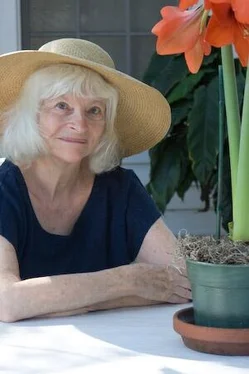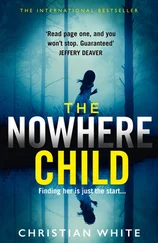Paul even enjoyed the drive-in milk bar that they had passed near International Airport that afternoon, with a fifteen-foot plaster cow browsing among plaster or plastic daisies on the roof. But when he pointed it out to Katherine, smiling, she shuddered and turned her head away.
After all, Katherine had expected that he would take one of those shabby jobs back East. She had not listened, or not believed him, when he explained that this would be the most rapid form of professional suicide. Any other sort of work that he might have elected to do, even the humblest, could have been justified more easily. He might have, literally, dug ditches for a year with less prejudice to his career. There would have been many possible explanations of that, from Marx to Zen. But if he had accepted one of those cheap academic deals, he would have been typed forever as a failure, a second-rater—someone who has crawled off into the cold woods and covered himself with dead leaves, better off forgotten.
It had been a wet, slow spring, and in spite of his natural optimism Paul had almost felt despair by the end of May, when he heard of this job in Los Angeles. The Nutting Research and Development Corporation, one of the largest electronic companies in southern California, was looking for someone with “advanced training in history, and if possible some scientific background,” to write a history and description of its operations.
Paul, with his degrees in history and literature, and his Navy radar training, was just what they wanted. The terms they named were amazing: his starting salary would be almost twice what any college had offered him. He would be sent at Nutting’s expense to Los Angeles in September, and as soon as his security clearance came through, Katherine and his furniture would be delivered to him, also entirely at the expense of the company. He had to sign only a one-year contract, so he could return to teaching the following fall—with (he hoped) most, perhaps even all, of his thesis written.
“You’re really going all the way out to Los Angeles?” some of his friends had exclaimed, men who spoke daily in familiar terms of ancient Mesopotamia or Transalpine Gaul. Paul had his answer to this. Historians looked backwards too exclusively, he said. Los Angeles obviously expressed everything towards which our civilization was now tending. As one went to Europe to see the living past, so one must visit southern California to observe the future. “Why don’t you come too?” he would finish by asking.
The air was still; the street empty except for the line of huge cars parked along the curb, glittering and grinning with chrome and polish and enamel. They seemed larger, or at least on a larger scale, than the houses. They were designed for luxurious giants; the houses for international midgets. Paul had noticed already that in Los Angeles automobiles were a race apart, almost alive. The city was full of their hotels and beauty shops, their restaurants and nursing homes—immense, expensive structures where they could be parked or polished, fed or cured of their injuries. They spoke, and had pets—stuffed dogs and monkeys looked out of their rear windows, toys and good-luck charms hung above their dashboards, and fur tails waved from their aerials. Their horns sang in varied voices, and signs pasted to their bumpers announced: “If You Can Read This, You’re Too Damn Close” or “Made in Pasadena By Little Old Ladies.” Among them Paul’s 1954 Ford seemed an old, lifeless machine. It made a dark, dingy spot in the parade, although he had just had it washed. Maybe he should trade it in—he could afford that now—and (why not, after all?) buy himself one of these amusing monsters. If he wanted to find out how it felt to live in the future, wasn’t that almost his duty?
“Paul, you always land on your feet,” other friends had said to him when they heard of this job, some of them adding enviously, “Yes, you should go to Los Angeles. You’d do well there” or “You’re already a southern California type.” Criticism was implied in the laugh that followed this, but he was willing to take it as a compliment.
When Paul’s acquaintances called him a southern California type, they were probably thinking of his love of the beach and other outdoor pleasures, and of the pleasure he took in movies, and even TV. No doubt they referred also to his occasional enthusiasm for such things as surf-casting, surrealist poetry, hypnotism, and the repair of his own household appliances—and his readiness for small adventures. They knew of enthusiasm mainly as an interesting phenomenon of eighteenth-century cultural history; not the characteristic of a serious historian—and yet, most of them would admit, Paul Cattleman was a serious historian. He was certainly not the standard graduate school product, though. He was too healthy and played games too well, for example, and he did not wear horn-rimmed spectacles. He did not wear spectacles at all; at large academic gatherings his brown eyes stood out oddly in a sea of glass goggles and refracting lenses, as if he were a man among Martians.
Paul walked up the narrow cement drive past his house to the back yard. Though the grass had begun to go brown in patches (he must water it again) flowers grew tall against the cinder-block walls, and there was a real peach tree, still hung with peaches.
Yes, he thought, leaning against the rough trunk of the tree, this city suited him: it suggested a kind of relaxed energy, the sense of infinite possibilities. Since his arrival, he had sometimes entertained himself by imagining that he saw parallels between Los Angeles and his “own” period of English history, the late sixteenth century. Here was the same tremendous expansion of trade, building, and manufacture; the flowering of new art forms; the discovery of new worlds. And still the city remained a city of walled gardens like the imaginary gardens in late medieval romances, full of allegorical blooms—fruit and flowers ripe at the same time. Perhaps here, too, he might find other paraphernalia of courtly love: the impenetrable castles, the opening-night pageants and tournaments, the elaborate ceremonies of public praise, the worship from afar of the beloved movie starlet.
“You’ll end up in bed with some starlet,” had been the jocose prediction of one of his friends. Paul had allowed himself to play with this fantasy a little. After all, there were plenty of starlets in Los Angeles, and some of them must get tired of the fat producers and vain, effeminate actors who surrounded them.
Of course he would never leave Katherine. He was in love with her; he had never seen a girl who moved him so deeply. On the other hand, in the three years since his marriage there had already been several episodes. It was Paul’s belief, verified by experience, that among the people one meets every day there is an informal, unrecognized secret society—a confederacy of those who, though they may appear to sustain the conventional code in public, subvert it in private. These members of what he liked to call “the underground” were able to recognize each other upon meeting by indefinable signs, rare in academic life: half a smile, a preference in fiction, a look of erotic aptitude and calculation.
Katherine was not, and would never be, a member of the underground. Cool, shy, affectionate but almost passive, she knew nothing of that side of life; love for her was an emotional, not a physical event. She was still very much the isolated country child, brought up in semi-rural New England by sickly parents whom it was impossible to imagine engaging in sexual relations. Maybe they had only tried it once, for Katherine was an only child. It seemed likely that their temperament had been hereditary.
As far as he could manage, Paul tried to be honest with himself; he was one of those fortunate people who, when they lift the lid of a dream or an acte gratuit, find mainly forgivable, if embarrassing, impulses. Besides, as an historian, he considered it his job to remember his own history. He therefore admitted now that it was just this shy, rural, even sylvan aspect which had first attracted him to Katherine. He had been moved to passion not only by her pale beauty, her white arms and long brown hair, but by something in her manner which recalled the unsophisticated, almost mute spirit of a tree or stream. She had the grace and tint of a Botticelli—and almost exactly the profile of the nymph who holds out a flowered robe to cover Venus as she rises from the sea. And she was all his; no one else had ever known her, in either sense.
Читать дальше












